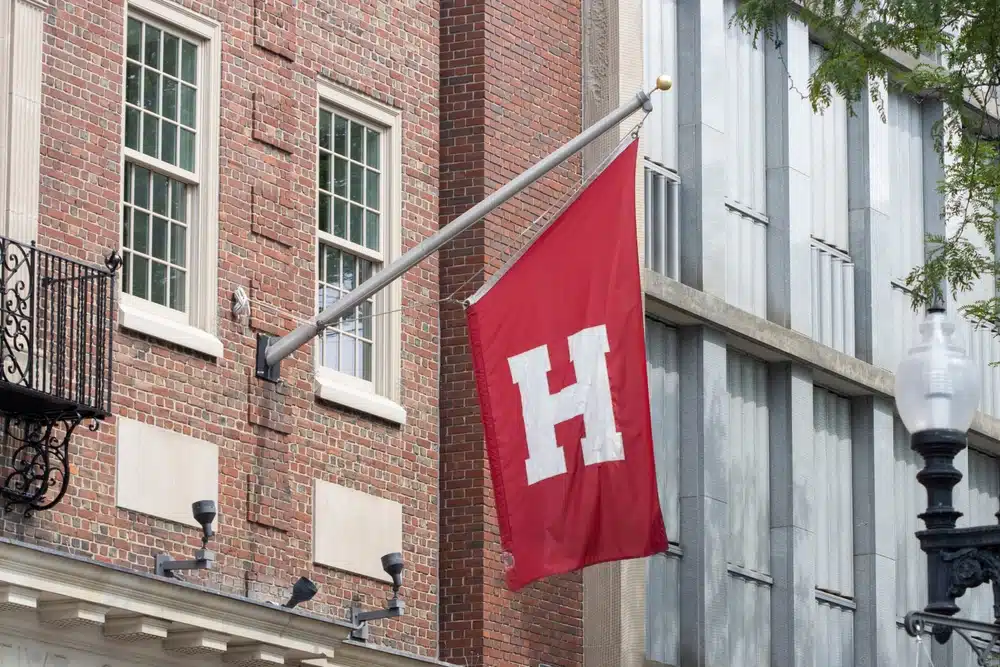How to Ace Your Harvard Interview
Getting accepted to Harvard University is a prestigious accomplishment that requires a combination of academic excellence and the right set of personal attributes. One vital part of the admissions process is the Harvard interview.
Your success in this phase can be a substantial factor in your approval. Hence, it’s crucial to prepare adequately. This guide will illuminate the Harvard interview process and provide valuable insights into acing your Harvard interview.
Understanding the Harvard Interview Process
The Purpose of the Harvard Interview
The Harvard interview serves a dual purpose. First, it provides Harvard a chance to learn more about you as a person beyond your grades and test scores. The interview gives the admissions committee a glimpse into your passions, experiences, and future aspirations. It lets them see if you would be a good fit for the Harvard community.
Harvard takes a holistic approach to admissions, considering not only academic achievements but also personal qualities and potential contributions to the university. The interview allows them to assess your interpersonal skills, communication abilities, and overall character. It provides a more comprehensive view of who you are as an individual.
Second, the process enables you to ask questions about Harvard and gain insights into life at the university. It is your opportunity to get your queries answered and to understand the college and its culture better. By engaging in a conversation with a Harvard alumnus or alumna, you can obtain firsthand information about the academic programs, extracurricular activities, and student life at Harvard.
Furthermore, the interview allows you to showcase your genuine interest in the university. By asking thoughtful and well-researched questions, you demonstrate your enthusiasm and commitment to becoming a part of the Harvard community.
What to Expect During the Interview
Harvard interviews provide applicants with a unique opportunity to engage in a meaningful conversation about their potential journey at the university. These interviews typically occur in relaxed settings. It’s important to note that alumni of Harvard often conduct these interviews as a way of giving back to their alma mater and participating in the admissions process.
During the interview, the alumni interviewer’s focus is on understanding your character, values, and intellectual curiosity. They are genuinely interested in learning about your unique perspectives, experiences, and personal growth. Questions may revolve around your high school experiences, interests, hobbies, and future plans.
It’s essential to remember that Harvard interviews are meant to be conversational, fostering a relaxed atmosphere where you can authentically express yourself.
To prepare for the interview, it’s beneficial to research Harvard’s programs, faculty, and campus culture. This knowledge will enable you to ask insightful questions and demonstrate your genuine interest in the university.
Additionally, practicing common interview questions and reflecting on your own experiences and goals can help you articulate your thoughts effectively during the interview.
It’s important to approach the Harvard interview as a platform to shine and showcase why you would be a valuable addition to the Harvard community. Embrace the opportunity to highlight your unique qualities, passions, and aspirations.
In the admissions process, the Admissions Committee at Harvard assigns interviews at its discretion, often based on the availability of alumni in your area. Harvard recruits students from all over the world, and while they have a vast network of nearly 10,000 alumni volunteers, not all regions can conduct interviews with every applicant.
If the Committee wants more details about a student or has inquiries about any application materials, someone may reach out to arrange an interview. However, interview requests are not accepted.
The interviewers typically get in touch with candidates by phone or email, and interviews can be conducted over the phone, via video conferencing platforms, or in person, depending on local public health limitations, your preferences, and those of your interviewer.
It’s worth noting that only the applicant’s name, contact information, and the name of their high school are available to the alumni interviewers, and they do not have access to the candidate’s application. These interviews are not recorded in any way.
Overall, the Harvard interview is a valuable part of the admissions process, offering applicants an opportunity to personally connect with the university and share their unique qualities and aspirations.
Preparing for Your Harvard Interview
Researching About Harvard
Before your Harvard interview, it’s essential to spend ample time researching the university. Understand its values, culture, programs, and community. This will not only equip you to answer any questions on why you want to attend Harvard, but it will also enable you to ask insightful queries during the interview.
Dive into the activities, initiatives, and programs that Harvard students are involved in. This research might also help you align your goals and interests with what Harvard offers, bolstering your case for why you are an excellent fit for the university.
Harvard, founded in 1636, is one of the oldest and most prestigious universities in the world. It has a rich history of academic excellence and has produced numerous world leaders, Nobel laureates, and influential thinkers. The university’s commitment to intellectual rigor, diversity, and innovation sets it apart.
Harvard offers a wide range of programs across various disciplines, ensuring that students have ample opportunities to explore their interests and pursue their passions. From the humanities to the sciences, from business to law, Harvard provides a comprehensive education that prepares students for success in their chosen fields.
Moreover, Harvard’s vibrant and diverse community fosters collaboration, intellectual curiosity, and personal growth. The university’s commitment to inclusivity and creating a supportive environment ensures that students from all backgrounds can thrive and contribute to the Harvard experience.
Reflecting on Your Personal and Academic Achievements
Prior to your Harvard interview, spend time reflecting on your personal and academic achievements. Consider experiences that have shaped your character or instances when you overcame adversity. These stories relay your resilience, adaptability, and strength to the admissions committee.
Also, reflect on your academic journey, significant projects, and your intellectual interests. Showcasing your love for learning can convince the committee of your genuine interest and commitment to your field of study.
Think about the extracurricular activities you have been involved in, such as leadership roles, community service, or artistic endeavors. These experiences can demonstrate your ability to balance academics with other commitments and showcase your leadership skills and passion for making a positive impact.
Furthermore, consider the challenges you have faced in your academic journey and how you have overcome them. Whether it was a difficult subject, a demanding project, or a personal setback, sharing these experiences can highlight your perseverance, problem-solving skills, and growth mindset.
Remember to also think about your long-term goals and how attending Harvard can help you achieve them. Whether it’s conducting groundbreaking research, making a difference in your community, or pursuing a specific career path, articulating your aspirations and how Harvard’s resources and opportunities align with them can strengthen your case.
Essential Interview Skills to Master
When it comes to interviews, there are certain skills that are essential to master in order to make a strong impression. In this article, we will explore two key skills that can greatly enhance your interview performance: communicating effectively and demonstrating confidence and poise.
Communicating Effectively
Strong communication skills are imperative for any interview. It is important to keep your answers concise and articulate, ensuring that you answer the question asked directly. This shows that you have the ability to effectively convey your thoughts and ideas.
If a query puzzles you, it’s okay to ask for clarification or a moment to gather your thoughts. This demonstrates your willingness to seek understanding and your ability to think critically.
Non-verbal communication is also an essential aspect of effective discussion. Maintaining eye contact shows that you are actively engaged in the conversation and are paying attention to the interviewer. Additionally, showing genuine enthusiasm in your responses conveys your passion and interest in the position or opportunity.
Furthermore, paying attention to your interviewer’s words and body language can provide valuable cues for how to tailor your responses. This interaction will portray you as an engaged and respectful individual, capable of adapting to different communication styles.
Demonstrating Confidence and Poise
Confidence and poise play a significant role in any interview, including those for Harvard. These qualities reflect your self-assured preparedness and maturity.
One way to demonstrate confidence is by practicing maintaining a calm demeanor throughout the interview. This can be achieved by taking deep breaths and reminding yourself of your qualifications and accomplishments. Remember, it’s okay to be nervous – but do not let your anxiety overshadow your confidence.
In addition to a calm demeanor, it is important to project a confident tone in your responses. Speaking clearly and with conviction shows that you believe in your abilities and what you have to offer.
Another aspect of demonstrating confidence is through your body language. Sitting up straight, maintaining good posture, and using appropriate gestures can convey a sense of assurance and professionalism.
Confidence stems from preparation. The more you research about Harvard, reflect on your accomplishments, and practice potential interview questions, the more confident you will feel during the interview itself. This preparation will also enable you to speak about your experiences and qualifications with ease and clarity.
In conclusion, mastering the skills of effective communication and demonstrating confidence and poise can greatly enhance your interview performance. By honing these skills, you will be better equipped to make a lasting impression and increase your chances of success in any interview, including those for Harvard.
Common Harvard Interview Questions
Preparing for your Harvard interview? It’s important to familiarize yourself with the types of questions you may be asked. The interview will most likely include a mix of academic-related questions and personal/extracurricular questions. Let’s dive deeper into each category:
Academic-Related Questions
When it comes to academic-related questions, the interviewer wants to gauge your intellectual curiosity and your potential contribution to the academic community at Harvard. You may be asked about your favorite subjects in school, significant projects you’ve worked on, or your intellectual interests outside of the classroom.
It’s crucial to keep your responses honest insightful, and demonstrate your passion for learning. Share specific examples that highlight your academic aptitude and showcase your ability to think critically. By showcasing your willingness to contribute to Harvard’s academic community, you can underscore your eagerness to be part of the university.
Personal and Extracurricular Questions
Aside from academic-related questions, the interviewer will also delve into your personal life and extracurricular activities. These questions aim to understand your character, values, hobbies, and abilities outside of the classroom. You may be asked about your roles in clubs or organizations, your hobbies, or your experiences overcoming adversity.
When answering personal and extracurricular questions, it’s important to be genuine and illustrative. Share stories that highlight your personal growth, lessons learned, and commitment to your interests. By doing so, you can help the admissions officer visualize you as a valuable member of the Harvard community.
Remember, the purpose of the interview is to get to know you better and assess your fit for Harvard. Be yourself, stay confident, and let your unique qualities shine through!
Post-Interview Etiquette
After the interview, it’s proper etiquette to send a thank you note to your interviewer. Express appreciation for their time and include specific details discussed during the interview. This gesture not only exhibits professionalism but also indicates your interest in the university.
When crafting your thank you note, it’s important to strike the right balance between gratitude and professionalism. Begin by addressing the interviewer by name and expressing your sincere appreciation for the opportunity to interview for a coveted spot at Harvard University.
Reflect on specific moments from the interview that resonated with you, whether it was a thought-provoking question or a stimulating discussion on a particular academic subject. By highlighting these details, you not only show your attentiveness during the interview but also demonstrate your genuine interest in the university’s academic offerings.
Furthermore, it’s essential to personalize your thank you note to make it stand out from the rest. Consider mentioning any unique aspects of the interview that made it memorable, such as an engaging conversation about a shared passion or a valuable piece of advice provided by the interviewer. By doing so, you create a lasting impression that sets you apart from other candidates.
Following Up After the Interview
If Harvard requires additional information or if there is a significant update on your side – like an achievement or accomplishment that occurred post-interview – do inform the admissions office. This can help keep them updated about your profile and maintain open communication.
Following up after the interview is not only a courteous gesture but also an opportunity to reinforce your interest in Harvard. It shows the admissions office that you are proactive and committed to pursuing your educational goals at their esteemed institution.
When reaching out to the admissions office, be concise and clear in your communication. State the purpose of your follow-up, whether it is to provide additional information or to share an exciting achievement. Attach any relevant documents or supporting materials that can further enhance your application.
By being organized and thorough in your follow-up, you demonstrate your attention to detail and your ability to communicate effectively.
Remember, acing your Harvard interview requires diligent preparation, strong communication skills, genuine enthusiasm, and professional follow-through. So prepare well, be genuine, and most importantly, let your personality shine through!
While the interview is a crucial component of the admissions process, it is only one piece of the puzzle. The admissions committee considers various factors when evaluating applicants, including academic achievements, extracurricular involvement, and personal qualities.
Therefore, it’s important to continue focusing on your academic pursuits and maintaining a well-rounded profile even after the interview.
Take this opportunity to reflect on your interview experience and identify areas where you excelled and areas where you can improve. Use any feedback provided by the interviewer to enhance your skills and refine your approach for future interviews or interactions.
Remember, the interview is not only a chance for the admissions committee to learn more about you but also an opportunity for you to learn more about Harvard and determine if it aligns with your educational and personal aspirations.
Having all the necessary information is important before choosing any course of action. AdmissionSight is always here to assist you with any questions or concerns. We have more than ten years of expertise assisting students in successfully navigating the challenging admissions process.
Consult with AdmissionSight and find out what we can do to help you get into the school of your choice by ensuring that you are sufficiently aware and well-prepared for the application process.










































